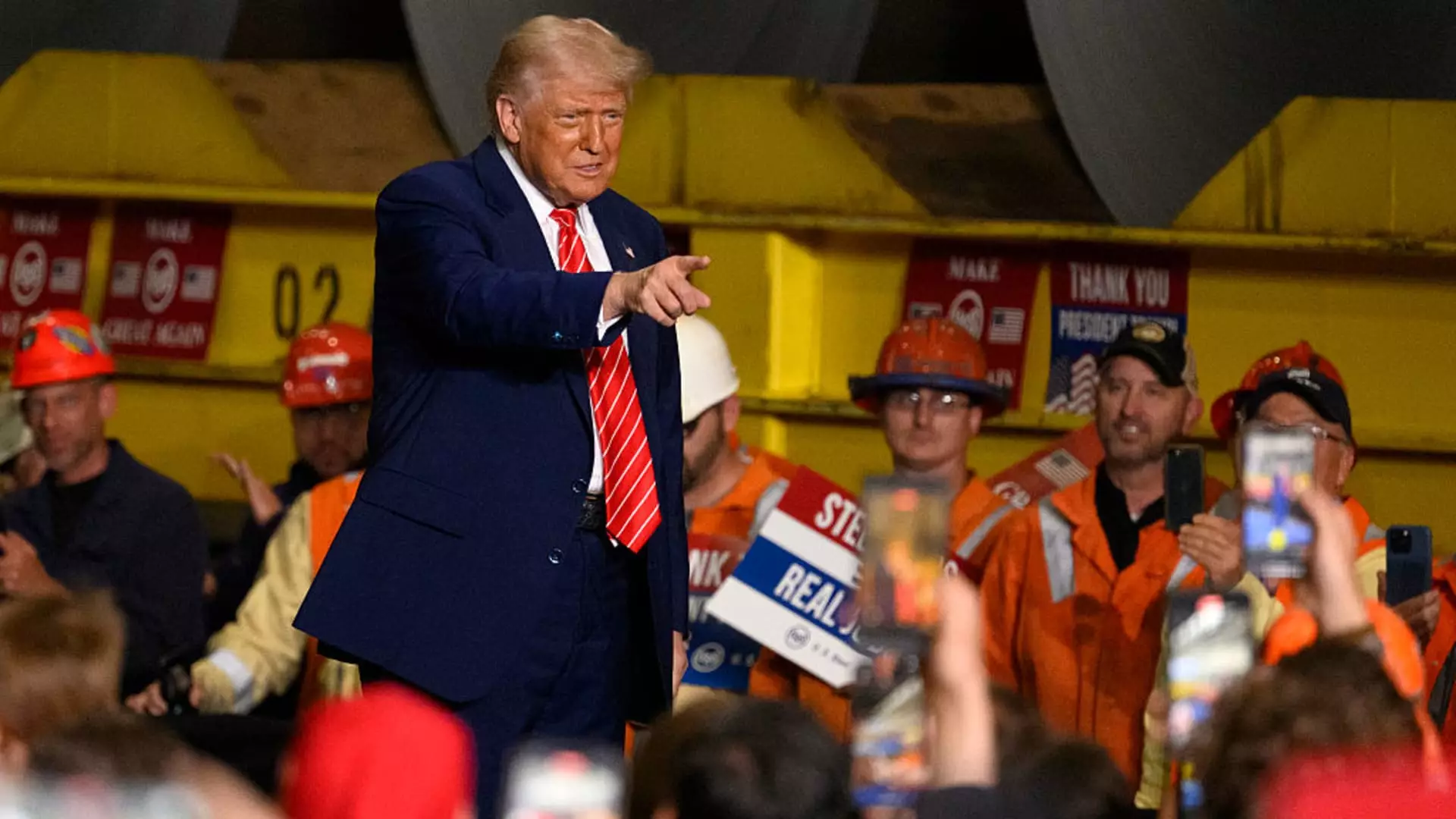President Donald Trump’s decision to double tariffs on steel imports from 25% to a staggering 50% has sent shockwaves through the global economic landscape, casting a shadow of uncertainty over trade relations between the United States and its allies, particularly the European Union. Instead of fostering an environment conducive to mutually beneficial negotiations, this aggressive move raises red flags about the administration’s approach to international trade. It is an act steeped in short-sightedness, one that prioritizes a superficial demonstration of power over the economic well-being of American consumers and exporters who rely on a stable, cooperative trade environment.
Critics, including a spokesperson for the EU, have articulated the underlying risks associated with such an abrupt escalation—a warning that the ramifications extend beyond tariffs themselves. These tariffs don’t merely raise prices; they threaten economic growth by increasing costs for consumers and businesses on both sides of the Atlantic. A move like this can have ripple effects, leading to inflated prices for everyday items, undermining the earnings of firms that depend on affordable raw materials to manufacture their products. The American working class, which many of these policies aim to protect, may find themselves suffering the consequences of rising costs and diminished buying power instead.
Canada’s Stake in the Game
On the other side of the border, the United Steelworkers union expressed a vehement opposition to Trump’s tariff strategy, framing it as a punitive action against Canadian industries and their workforce. The stakes are high—thousands of jobs in Canada hinge on the life or death of steel and aluminum industries, industries that have long served as the backbone of many communities. Marty Warren, the National Director for United Steelworkers Canada, made it clear that the Canadian government needs to step up in defense of its workers. The sentiment echoes a broader frustration that characterized the NAFTA negotiations, where issues of labor and industry often became political chess pieces instead of priorities.
The tension between the U.S. and Canada, exacerbated by these tariffs, illustrates a critical flaw in Trump’s approach to trade: it risks alienating key allies in a global economy that favors cooperation over confrontation. Instead of fostering solid relationships with its closest neighbors, the U.S. is cornering itself into a position of isolationism that could potentially harm all parties involved. The value of solidarity in trade cannot be overstated; it is often through collaboration that both economies can thrive.
Law and Order in Trade
Trump’s tariff initiative faced a significant legal challenge earlier this week when the U.S. Court of International Trade took the uncommon step of halting nearly all country-specific tariffs on the grounds that the administration had overstepped its authority. This legal intervention signifies a potential shift in the tide—a reminder that while executive measures may wield power, they are still subject to the checks and balances that keep governance accountable. The ongoing battle illustrates the precariousness of relying on tariffs as a central strategic tool; it undermines the very foundation of fair and lawful trade.
Moreover, the prospect of countermeasures from the EU looms larger than ever. The EU, having shown restraint by pausing its response to facilitate negotiations, now finds itself in a position where retaliatory tariffs could be reinstated with little hesitation if an acceptable compromise fails to materialize. Such an outcome threatens to escalate into a full-blown trade war, with the potential to damage both economies significantly. The notion that trade disputes can be resolved through sheer force must be reevaluated; historical precedent shows that diplomacy often yields more sustainable results.
The Will of the People vs. Political Theatre
Ultimately, Trump’s approach to tariffs appears more theatrical than practical—a performance in an ongoing political show where the audience takes precedence over the reality of economic implications. His rally speeches touting an “agreement” with Nippon Steel and U.S. Steel sound more like campaign rhetoric than an actionable policy, leaving many consumers and industries questioning the authenticity of these negotiations. The propagation of illusory job security does little to address the pressing fears of workers and businesses facing the immediate effects of rising tariffs.
As we find ourselves ensnared in a cycle of retaliatory economic tactics, it is crucial to remember that the true impact of these policies extends beyond short-term political gains. It’s a clarion call for introspection and a reevaluation of what constitutes sound economic policy. A shift towards collaboration, rather than confrontation, is essential for fostering sustainable growth that can benefit not just political leaders but also the working individuals and families that constitute the backbone of our economies.

Leave a Reply